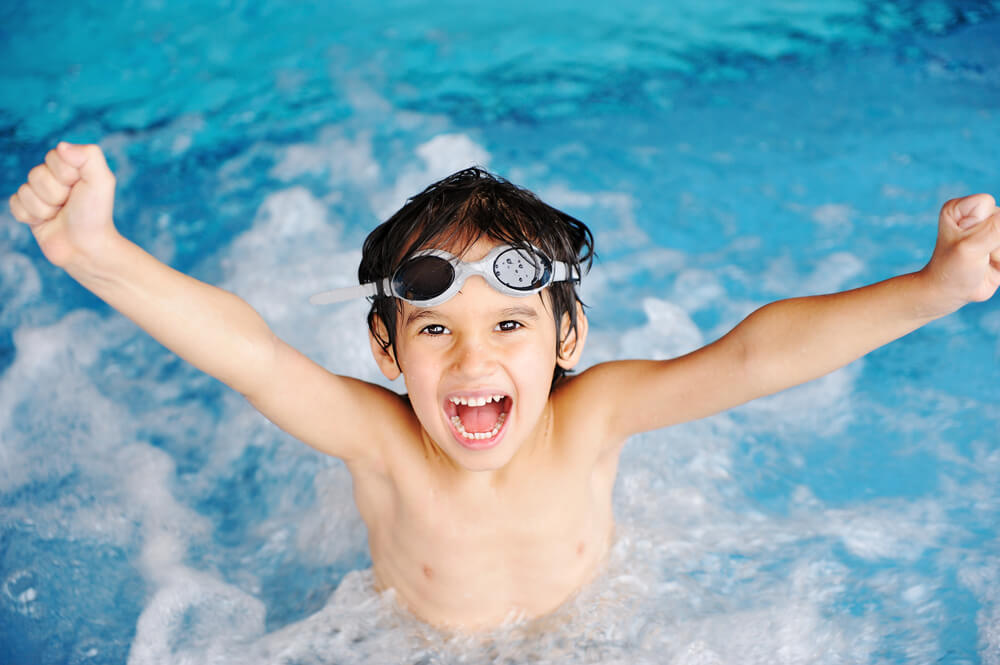National Youth Sports Week
After spending extended time away from individual and group sports this past year, physical activity is expected to play a vital role in the recovery of young people. From the 19th to the 23rd of July, the Pediatric Endocrine and Metabolic Center of Florida joins the National Council of Youth Sports in celebrating National Youth Sports Week! The NCYS, along with the PEMC of Florida, promotes the essential role of youth sports in America.
What Are the Benefits of Sports for Youth?

The benefits of sports for youth are numerous. Youth sports help get young people active and teach various important life skills, such as compassion, patience, work ethic, teamwork, and healthy exercise habits. The CDC recommends that children and teens engage in one or more hours of physical activity every day. In addition to this, it is recommended that the exercise should include cardio and muscle and bone strengthening.
Here are some helpful tips to get children and teens motivated:
- Modeling behavior and healthy habits encourage children to get active.
- If your child is not interested, begin slowly, such as walks, field trips outdoors, and more.
- Get kids outside and limit stationary screen time on phones, televisions, and computers.
- To help kids stay active, it is helpful to encourage and congratulate them for their efforts.
- Support their participation in a variety of physical activities, from dance to sports.
- Make physical activity fun by encouraging children to try new things and activities.
- When they find an activity they connect to, encourage them to keep up with it.
- If you can, utilize sports equipment items such as balls, jump ropes, scooters, bikes, skateboards, rollerblades, active games, and more.
- Starting at a young age, if it is available, let children walk and ride scooters or bicycles instead of relying on sedentary transportation such as strollers and car rides.
Because of the COVID-19 pandemic, many of our lives and daily routines have been significantly altered. Despite this, it is essential to remain active and instill healthy habits of physical activity and exercise in children from a young age.
Exercising regularly reduces later development of anxiety, depression, and other serious health conditions such as obesity, high blood pressure, heart disease, diabetes, and more. In the short term, engaging in regular physical activity increases concentration, enhances academic performance, and helps children and adolescents to regulate challenging behavior.
What Are Some Barriers in Youth Sports?
Barriers such as lack of time, cost, and lack of inclusivity for children and adolescents living with different abilities affect youth sports. The National Youth Sports Strategy hopes to break down these barriers across the nation so all children, regardless of ability, can get active and participate in sports. Helpful ways to encourage participation in youth sports in your community include spreading the word about the benefits of sports in youth and advocating for accessible and safe athletic programs and facilities. In addition to this, we can encourage compassion and wider participation in youth sports by emphasizing fun over competition.
How Can We Advocate for Sports Safety?
The National Council of Youth Sports and PEMC of Florida are advocates of healthy lifestyle choices, strengthening communities through sports, and creating safe environments for people of all backgrounds and abilities to engage in physical activity.
Here are some ways in which you can teach children about sports safety:
- Before the school or sports season begins, make sure your child receives a physical exam. It is necessary to screen for any injuries or conditions that may exist before a child begins playing their sport, especially if they have a condition like asthma, for example, that may prevent them from participating in certain strenuous physical activities.
- Prior to their first practice or rehearsal, make sure your child’s school, practice facility, or instructor/s has necessary emergency contacts on file and is aware of any essential health information, such as allergies, health conditions, prescriptions, and treatment plans.
- Speak to your child about the importance of practicing safety precautions and rules of their sport or activity to avoid injury to themselves or others.
- Ensure your child is aware of any worrisome signs and symptoms of injury and know when and how to take action or get help if needed.
- Be sure that your child has a regular bedtime routine to ensure proper rest overnight. Encourage them to responsibly utilize breaks and downtime to avoid overuse or injury while playing their sport.
- Communicate to your child that hydration is key in athletics and daily life.
- Be supportive in establishing and maintaining a healthy meal plan with adequate nutrition, which will provide proper sustenance and nutrients, alertness, and better performance on the field, court, or otherwise.
- Before practice or a game, check that your child’s equipment and sporting gear is not damaged or broken and that it fits appropriately. Teach them how to check this as well.
- Relay how essential stretching is to your child, articulating how they should stretch at least ten to fifteen minutes before strenuous physical activity. This will aid in the prevention of injury and overuse of the muscles, ligaments, and joints.
Education, access, and awareness of sports safety, including thorough health screenings, injury prevention, nutrition, parent education, and more, are vital tools for keeping youth sports and all sports safe.
What Are the Benefits of Youth Sports Beyond Physical Activity?

Regular physical activity comes hand in hand with various benefits, including enhanced academic performance, psychosocial health, and more. Although there can be risks associated with engaging in youth sports, like stress or injury, research has proven that the benefits of exercise outweigh the risks.
Some of these benefits include:
- Improved performance in school, such as enhanced concentration
- Consistency in class attendance and participation in school
- Development of necessary social skills, like leadership, teamwork, and more
- Reduced risk of anxiety, depression, and self-harm in the short and long-term
- Increased confidence and self-esteem
- Decreased risk of behavioral problems and substance abuse
- Prevention of chronic health problems, such as obesity or heart disorders
- Learning functional coping skills to work through loss, mistakes, and more
Children and adolescents of all backgrounds and abilities can benefit from learning sports skills and engaging in healthy exercise. Experience and participation in athletics, and the many valuable lessons learned from playing sports, can carry over into many different areas of life positively.
Why Do We Celebrate National Youth Sports Week?
We celebrate National Youth Sports Week because it is important to show how youth sports organizations can collaborate with Congress to promote healthy lifestyle choices for children and adolescents across the country. The PEMC of Florida supports youth sports programs and the many benefits of sports for the youth engaging in healthy, consistent physical activity and exercise.
We care about the well-being of your children, and we are committed to serving your family and child’s healthcare needs. Visit our website today to learn more about the comprehensive care options we offer. We look forward to hearing from you!


